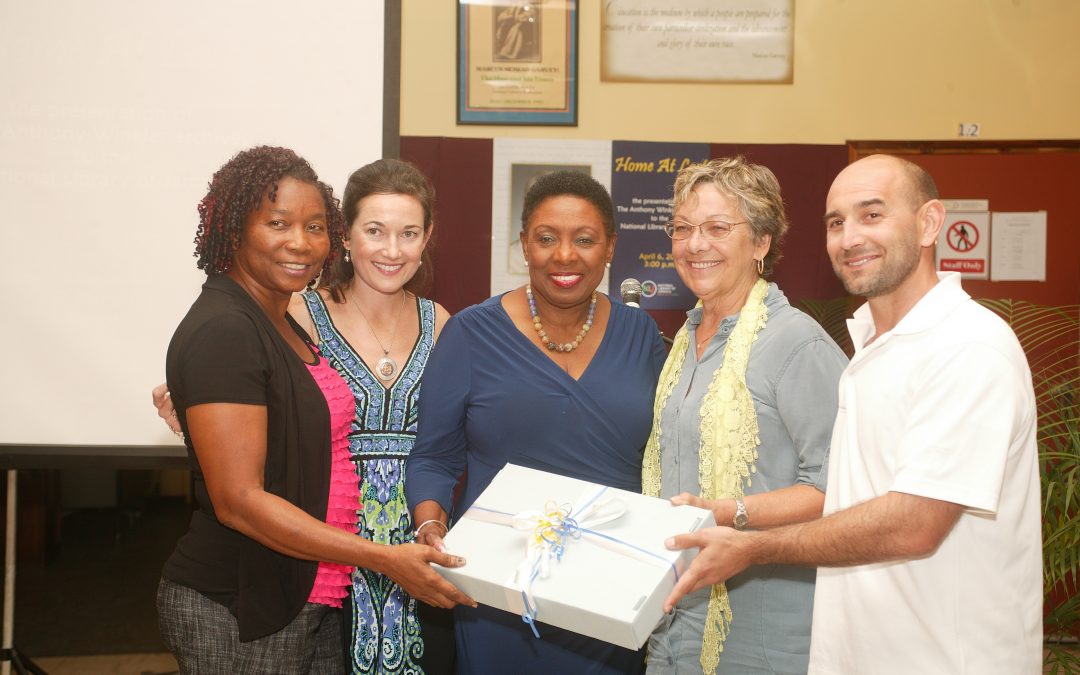
The following speech was delivered by Dr. Kim Robinson-Walcott at the Presentation of the Anthony Winkler Archives to the National Library of Jamaica on April 6, 2017.
Kim Robinson-Walcott, PhD, is editor/head of Caribbean Quarterly, University of the West Indies, Mona. She is also the editor of Jamaica Journal, published by the Institute of Jamaica. She has worked as a writer, editor and publishing consultant for over 35 years. As editor then editorial director of Kingston Publishers in Jamaica (1981–86, 1991–98) she spearheaded the company’s venture into the publication of Jamaican fiction and children’s books. In 1981 she ‘discovered’ Winkler as a Jamaican novelist when she read the manuscript of The Painted Canoe and persuaded the publisher, Mike Henry, to offer Winkler a contract. She would subsequently edit another four manuscripts by Winkler for Kingston Publishers over the next decade, then another three books of his for Macmillan when he moved to that publisher. In the mid-1990s she embarked on a PhD on Winkler’s work, which she was awarded in 2001; and she converted that thesis into the book Out of Order! Anthony Winkler and White West Indian Writing (University of the West Indies Press, 2006). Her other publications include Jamaican Art (Kingston Publishers, 1989, 2011) which she co-authored, The How to Be Jamaican Handbook (Jamrite Publications, 1988) which she co-authored and illustrated, and the children’s book Dale’s Mango Tree (Kingston Publishers, 1992), which she also illustrated. Her scholarly articles, book chapters, short stories and poems have been published in a number of journals and anthologies.
Why the Winkler Archives are Important to Jamaica
In September 2015 when I attended Tony Winkler’s memorial service in Atlanta, I visited the Winklers’ home and was shown Tony’s study by his son Adam; it was overflowing with manuscripts and papers and the family was overwhelmed and unsure what to do with it all. I had been to a workshop on Caribbean literary archives in Trinidad the previous year, and the thrust of that workshop was the politics of location of Caribbean literary archives. It is of concern to some, for example, that VS Naipaul’s papers are housed at the University of Tulsa; as are those of Jean Rhys. So my main thought when I saw the papers in Tony’s study was, please don’t let Winkler’s papers go to some US institution!
A year later, in October 2016, I participated in the 35th Annual West Indian Literature Conference, whose subject was “Archiving Caribbean Literature and Popular Culture”. At the end of a session in which librarians from the National Library of Trinidad had related the story of their acquisition of the papers of Guyanese-Trinidadian writer Ian McDonald, I was so inspired by what I had heard that I impulsively approached Winsome Hudson, who was also attending the conference, and asked her whether the NLJ might have any interest in acquiring Winkler’s papers. Winsome’s response was immediate: a resounding YES! Amazingly, within a couple months Winsome had negotiated successfully with Cathy, and the next thing I knew Winsome and I were flying up to Atlanta to go through the papers, and here we are today. So I would like to thank Winsome for her immediate and enthusiastic response, her commitment to this project, her determination to see it through.
Why did I feel passionately that Winkler’s papers should be acquired? First of all, why are the archives of any writer important? They are important to scholars who seek to gain a deeper understanding of the writer’s work. By looking at drafts of manuscripts, or at correspondence, or even at memorabilia, one gets a fuller picture of the writer and of his or her creative process. They are part of a country’s cultural heritage. They are a rich inheritance.
“I have never known of any Jamaican novel to be more popular than The Lunatic. Anyone who has read The Lunatic would of course understand why: it is bawdy, outrageous, side-splittingly funny.”
Winkler is famous to most Jamaicans as a writer of comic fiction – principally as the author of The Lunatic, his second novel, and the one which established him as a bestselling novelist in Jamaica. That achievement alone would justify having his archives in the National Library of Jamaica. I have never known of any Jamaican novel to be more popular than The Lunatic. Anyone who has read The Lunatic would of course understand why: it is bawdy, outrageous, side-splittingly funny. I used to higgle Winkler’s books at West Indian literature conferences abroad, whenever I presented papers on Winkler as a postgraduate student, because I had found that many people wanted to read the books I was discussing and they weren’t available in the bookstores in those countries – so I would carry a suitcase full of books, especially The Lunatic. In those days there was a security check before we entered the departure lounge. On one trip, I put my luggage through the x-ray machine and the security officer was very suspicious about all these books, and insisted surlily that I open up my luggage for an examination. When he saw The Lunatic he practically squealed with delight. ”Mi read dat book!” he exclaimed. “You know de man who write dat book?” When he heard that I did indeed, I was treated like royalty thereafter. In more ways than one, it was a Winklerian moment.
Winkler stands alongside other Jamaican fiction/prose writers whose works have formed the Jamaican literary canon: Roger Mais, John Hearne, Neville Dawes, Lorna Goodison, Olive Senior, Kei Miller, Marlon James. The Lunatic is already on its way to becoming a classic in Jamaican fiction (or, to use wordplay that originated with Mervyn Morris, my PhD supervisor, it is on course to becoming a classic in Jamaican fiction). I need to emphasise, though, that Winkler is unique because in his work he is able to combine outrageous farcical humour with insightful social commentary and incisive analysis of his fellow Jamaicans. Winkler’s books transcend the boundaries between popular and serious fiction. As I stated in my scholarly study of Winkler’s oeuvre, there is a sobriety underlying the farcical humour and a richness underlying seeming superficialities which are often underestimated; there is an artistry in the seamlessness with which these levels coexist; in short, Winkler’s books warrant serious consideration. NLJ’s acquisition of Winkler’s archives will undoubtedly facilitate such consideration.
I know that Nicole Prawl is going to formally introduce the Winkler archives, but I would like to say a few words about what Winsome and I encountered in Winkler’s study when we went to Atlanta. What did we find?
Numerous (100+?) poems of which I had only known of a few (here I should note that thanks to the initiative of Tony’s daughter Becky Winkler, a number of these will be published soon by the University of Georgia Press).
“In short, I am excited by these archives, and hope to spend very many hours buried in them.”
Some 20-plus playscripts, of which I had only known of a couple (including The Burglary, which was mounted in Kingston); and some 4-6 manuscripts of unpublished novels, most of which that I hadn’t known of before. My assumption is that most of those playscripts and novels were written before The Painted Canoe was published in 1983. My impression – though I can’t swear to this since I was getting cross-eyed (as was Winsome) going through mountains of paper in 3 and a half days — but my impression is that all of these older manuscripts were set in the USA. Winkler stated more than once that he found his creative voice when he started writing about Jamaica: the fisherman who was the protagonist in his early short story “The Man Who Knew the Price of All Fish” jumped off the page and took over his life. That man grew into Zachariah, the protagonist of The Painted Canoe. After that, there was no holding back Winkler in his churning out of his Jamaican fiction.
There were also fragments of 2 unfinished novels written in recent years – multiple versions. One, Silver Sands, was to be the final part of a trilogy of which God Carlos and Family Mansion had been the first two parts. The other, tentatively titled “True Duppy” among other versions, was a novel Winkler had been struggling with for years. He had expressed to me on numerous occasions – and I am sure his wife Cathy and his children Becky and Adam can confirm this – that he was dissatisfied with his depiction of God, or of man’s relationship with God, in his 1997 novel The Duppy (which by the way is one of my favourite Winkler works) and felt another side of the story had to be told. There were many drafts of this novel. One draft is titled “A Walk through Heaven and Hell’ by Anthony C. Winkler and Horace Brown, with Occasional Interpolations from God Almighty”, and in the first line, the first-person narrator asserts, “The writer Anthony C. Winkler is a dirty, stinking liar…. I’m here to tell you that [the Duppy] is all bogus and sham – that every word of that evil book was made up by Winkler.” On the second page the writer states, “My name is Horace Brown, but everyone calls me Dictionary.” My fervent hope is that someone, somehow, in excavating these archives, will come up with a complete manuscript of this novel – I am dying to get to know Dictionary and find out why he is so outraged by Winkler’s depiction of heaven in The Duppy. Already I am salivating.
In short, I am excited by these archives, and hope to spend very many hours buried in them. I hope many others will also be excited. Winkler’s work deserves greater exposure, and further analysis. The housing of these archives with the NLJ will make this possible. But for me the best part of the acquisition is that it demonstrates how much Jamaica values Winkler’s work. Tony’s biggest ambition was to be recognised in his homeland. His ultimate wish was to return home to mummy. He was a treasured friend, and I know how much this would have meant to him. I am happy to have played a small role in enabling that homecoming.

